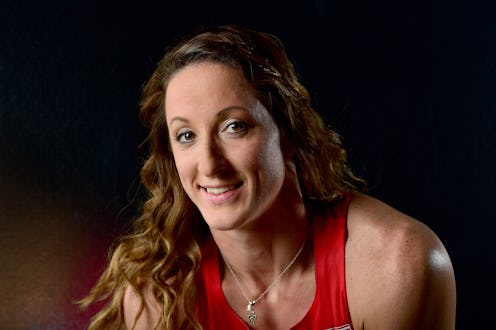News
This Will Change The Way You See The Paralympics
Every four years, Americans are mesmerized by the talent, determination, and speed of athletes at the Summer Olympics, but there's another set of games that unfortunately receives less recognition — the Paralympics. As sister competitions, the Paralympics are parallel to the Olympics, and athletes with physical disabilities go head-to-head in the same sporting events with the same level of skill. With Rio 2016 around the corner, Paralympians Tatyana McFadden and Jessica Long are proving that they're every bit as elite as Olympians.
Long, a 23-year-old swimmer, was born with fibular hemimelia, a congenital lower limb defect, and had both legs amputated below the knee when she was 18 months old. McFadden, 26, was born with spina bifida that left her paralyzed below the waist, and competes in track and field, as well as Nordic skiing in the winter. Outside of the Paralympics, she also races in marathons, and won her third straight marathon grand slam in 2015 after dominating the London, Boston, Chicago, and New York races.
The two athletes want to be recognized side-by-side Olympians, as they've dedicated their lives to their respective sports and each have Paralympic medals in the double digits. "When it comes down to it, we all compete for Team USA," Long tells Bustle.
There's a common misconception that because Paralympians have some form of physical disability, they aren't as athletic and train less intensely for the games — which simply isn't true. "Everyone goes through pretty much the same training," says Joaquim Cruz, Team USA's head Paralympic track and field coach. "I work with Olympians as well as Paralympians, so if you go to the track, they're going to be doing the same workout." If Cruz needs to adjust a workout for an athlete's particular disability, he'll do so, but the altered training will be just as difficult.
"My first year, I was in awe," says Cruz, who is an Olympic track and field gold medalist himself, of the Paralympian athletes' physical and psychological strength. "The treatment is the same and the goal is the same," Cruz tells Bustle. "They're here to compete for a medal." McFadden and Long have done just that, winning 11 and 17 Paralympic medals respectively.
Cruz thinks some Americans have trouble recognizing that Paralympians are of the same caliber as Olympians because they're unfamiliar with the Paralympics and athletes with disabilities. "[Americans] don't know what they're capable of doing," he says.
Once you watch a Paralympic sporting event, you'll know.
After Long won three gold medals in the 2004 Athens games when she was just 12, people kept congratulating her on being a Special Olympian, and while Long thinks the Special Olympics is a fantastic organization for athletes with intellectual disabilities, it's very different from the Paralympics. The Special Olympics, for instance, doesn't exclude athletes based on qualifying scores, whereas Paralympic athletes have to meet qualifying standards, just like the Olympics.
"I've seen people's perceptions really change once they find out our training regimen, especially just the amount of work that we put in," says Long, who's in the pool about 10 times a week, with weight training, spin classes, Pilates, and yoga on top of that. "It's just grueling," she says. "Especially being day three — a Wednesday — and I still know I have three or four practices."
McFadden remembers, along with her teammates, meeting Olympic track and field athletes at the 2012 London games who were somewhat shocked by their Paralympic counterparts' training. "They said, 'Wow, I didn't realize we have literally the same training cycle,'" McFadden says. "We're like 'Well, yes, we do the same event.'"
When America (and the world) realizes that Paralympians and Olympians are equal, the athletes' treatment will inevitably become more alike as well. While many Olympians are full-time athletes, it's much harder for Paralympians to attract enough sponsors and endorsements to fund their training and pay rent. "Hopefully Paralympians can really do this for a living just like Olympians," says McFadden, whose racing chair and wheels cost more than $9,000 alone.
Since she began racing in marathons around the world, McFadden has seen a dramatic shift in how able-bodied runners and fans view her. Now, she says, people seem genuinely impressed by her athleticism, whereas before, their reactions and congratulations sounded more patronizing. "People are coming up to me, and they're talking about their training schedule," McFadden tells Bustle. "They're asking me about advice and what they should be eating, how they should be training, where they should taper."
McFadden and Long are already changing Americans' attitudes toward the Paralympics and athletes with disabilities simply by excelling in their sports and speaking out to correct misconceptions. As Long says, "At the end of the day, we are elite athletes."
